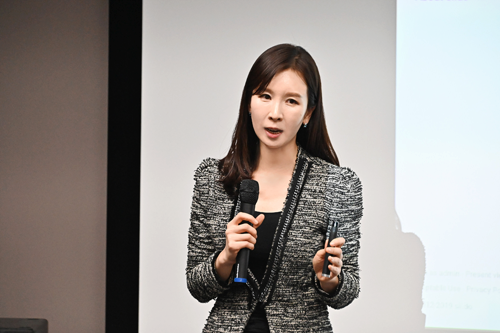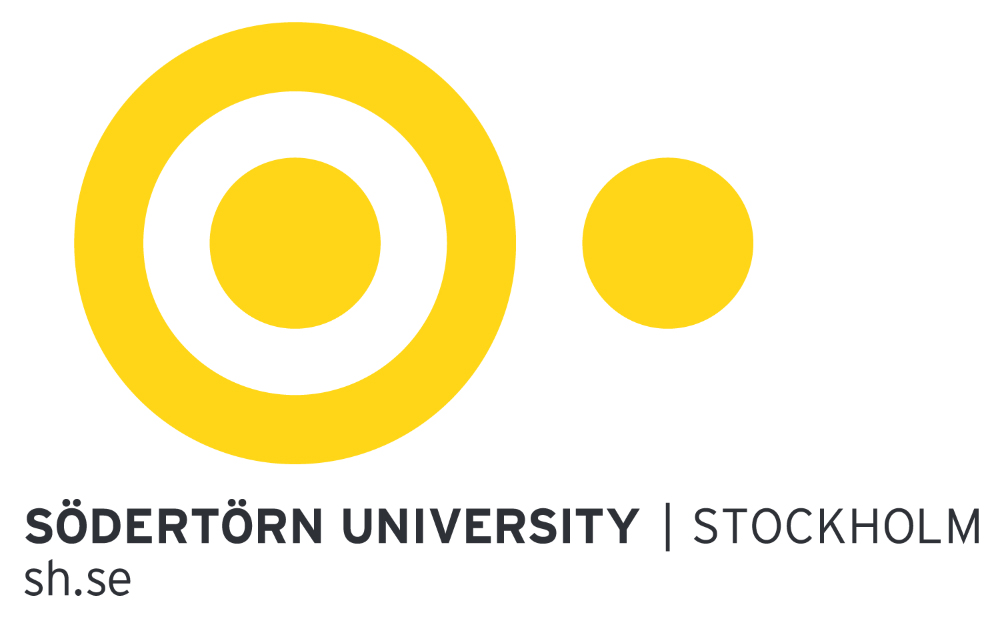German and American Fulbright Scholars Visit U of A to ‘Build Bridges’
news.uark.edu, April 30, 2019
FAYETTEVILLE, Ark. – German and American Fulbright scholars and guests will convene on the University of Arkansas campus May 17-19 for a conference aimed at understanding the trajectory of trans-Atlantic ties and the future of international cooperation.The conference, “Building Bridges: The Fulbright Legacy and the Future of International Exchange,” is part of the “Wunderbar Together” campaign sponsored by the Federal Republic of Germany. It is co-sponsored by the German-American Fulbright Commission and the University of Arkansas International and Global Studies Program and Office of Study Abroad. It will cap a year of commemorative events on both sides of the Atlantic celebrating German-American cooperation.To kick off this final event, groups of German scholars studying in the United States – accompanied by American former grantees of Fulbright Awards – will complete weeklong road trips from Milwaukee, Indianapolis and Austin exploring middle America an..
The role of soft power in China’s influence in the Pacific islands
Richard Herr, aspistrategist.org.au [ASPI - Australian Strategic Policy Institute] April 30, 2029
Just why the concept of soft power has become such an accepted explanation for the spread of Chinese influence in the Pacific islands is something of a conundrum. (The term ‘Pacific islands’ is used here with the narrow meaning of the small member states of the Pacific Islands Forum.)There seems to be little evidence that regional states have the sort of admiration for, and desire to emulate, China’s political or economic systems in the way Joseph Nye framed his idea about the attractive power of non-coercive influence.It was the geopolitics of the Cold War that motivated China to seek a place in the Pacific island sun, not some soft-power pull from regional states seeking to a model to follow. And, for nearly two decades afterwards, Beijing scarcely made a ripple in the regional lagoon, which ended with a flurry of ‘dollar diplomacy’ competition with Taipei for recognition.A main motivat..
On the social media ‘battlefield,’ the Israeli army has weaponized snark
Sam Sokol, jta.org, April 30, 2019; original article contains video
Image from article, with caption: (Photo by Quique Kierszenbaum/Getty Images; photo illustration by JTA staff)
JERUSALEM (JTA) — Earlier this month, just hours before the start of Passover, the British Labour Party tweeted out holiday greetings to its more than 671,000 followers.
“As Jewish people prepare for Passover, we’re wishing everyone in the Jewish community chag sameach,” read the now deleted message, which was accompanied by the image of a Star of David, a kiddush cup — and a loaf of bread.
The image of a food specifically prohibited on Passover, in a tweet from a party battling allegations of institutional anti-Semitism, immediately created a firestorm on social media.
Responses ranged from enraged to humorous. Joining the fray was the Israeli army, whose official account tweeted a “Happy Holidays” message with a similar image featuring matzah, an Easter egg and a Druze pilgrimmage site.
Responses on social m..
Lecture: People Diplomacy: Domestic Engagement in Foreign Affairs
Kwang-jin ChoiDate8 May 2019Time11:15 - 12:45 hrsSeriesDiplomacy and Global Affairs Research Seminar Series 2019LocationWijnhaven
Turfmarkt 99
2511 DP The HagueRoom3.60RegistrationWould you like to join the lecture? Register now.About the lectureThere is a clear trend among foreign ministries and their diplomats towards greater domestic engagement. In the Netherlands, political parties call for greater people involvement in foreign affairs and worldwide we see a variety of drivers calling for a more people-centered diplomacy. Today domestic stakeholders loom much larger in foreign affairs than, say, ten years ago. There is a distinct shift from conventional diplomacy between governments and public diplomacy [JB emphasis] performed for the foreign public to citizen diplomacy 2.0. South Korea’s “People Diplomacy,” (Kookmin Waygyo국민외교) is a new and important government-guided diplomatic experiment in the Republic of Korea. It aims to reflect the people’s need for the democratization of di..
Japan: Will Reiwa be harmonious and peaceful as it is supposed to be?
Darya Gribkova, moderndiplomacy.eu, April 30, 2019
uncaptioned image from article
Excerpt:
On May 1, 2019, Japan enters a new era – Reiwa [JB - see], the era of peace and harmony … with a “baggage” of problem accumulated in the previous Heisei period. By itself, a change of the name with a change of emperor has a rather symbolic meaning and, of course, it is not a specific political programme, – unlikely it will bring any peculiarities to the external and internal political agenda. ...
Despite the countless exercises of experts and politicians in determining of the Indo-Pacific, its core, purpose and structure, it is still unclear, how the idea of the Indo-Pacific region, in which Japan claimsto play one of the leading roles, will develop, and in what form, what institutional structure it could be realized. ...
With many unsolved issues in economic and foreign policy spheres, Japan has a great chance to show to the whole world and feel by itself beautiful harmony during the 2020 Summ..
Dr. Hwa-jung Kim (SNU Institute of International Affairs): ‘Whoever is interested in public diplomacy...
enewsletter.kf.or.kr; via DB - many thanks!
In 1965, US diplomat Edmund Gullion defined public diplomacy [JB emphasis] as “an activity that wins the hearts of the public in other countries and secures their support,” thereby establishing the concept of public diplomacy for the first time. Korea’s Public Diplomacy Act states that public diplomacy refers to “diplomacy activities through which the State promotes foreign nationals' understanding of and confidence in the Republic of Korea directly or in cooperation with local governments or the private sector based on culture, knowledge, policies, etc.” However, it is not easy for individual citizens to recognize themselves as both the subject and object of public diplomacy, as most have never learned about the activities and importance of this very special form of diplomacy. This is why the KF interviewed Dr. Hwa-jung Kim of the Seoul National University Institute of International Affairs, who has long been a champion of public diplo..
May Journal Looks at the FS Profession and Speaks with Ambassador Bill Burns
via email
Ambassador (ret.) Bill Burns, the diplomat’s diplomat, left the Foreign Service in 2014 after 33 years. Now president of the Carnegie Endowment for International Peace, he spent the last couple years not speaking publicly about the state of State. So, we were delighted when Ambassador Burns agreed to do a Q&A with the FSJ. His new book and his voice help make us all more articulate about the value of diplomacy today.
This month we look at the Foreign Service as a career: the challenges and lessons that come with this complicated, difficult and exciting life of public service. We hear about how the U.S. Foreign Service found its voice in the late 1960s in Harry Kopp’s “Role Models: Lessons for Today from AFSA’s Past,” offering inspiration for the next generation of leaders. In “Serving in Tandem for State,” Kathryn Fitrell and Kanishka Gangopadhyay have suggestions for better management of tandem assignments.
A DS agent shares lessons from his personal journey with PTSD. We he..
Conference: Public Diplomacy in Conflict – Nordic, Baltic and East European Perspectives
helsinki.fi
image from
Panel talks with practicioners, researchers and representants from media and culture about current conflicts and the future of public diplomacy [JB emphasis] and nation branding. The conference is hosted by Södertörn University in cooperation with the Swedish Institute and supported by the Centre for Baltic and East European Studies (CBEES) and ReNEW.
Public diplomacy and nation branding are expanding fields at the intersection of policy, practice and research. The approaches and models for diplomacy and branding practices are getting more diverse, and so are the theoretical and methodological approaches to these phenomena as study objects.Especially for small and medium sized states, public diplomacy has been seen as a way to gain influence and shape the international agenda beyond their limited hard power resources, whereas nation branding presents a way for smaller nations to create and maintain a distinct international image. Scandinavia, the Baltic area and ..
SCO’s Public Diplomacy Center holds round table on international relations
xinhuanet.com
Photo taken on April 30, 2019 shows participants attending a round table in Tashkent, Uzbekistan. Shanghai Cooperation Organization's (SCO) Public Diplomacy [JB emphasis] Center in Uzbekistan Tuesday held a round table to discuss SCO's practice in strengthening international relations through public diplomacy. (Xinhua)
TASHKENT, May 1 (Xinhua) -- Shanghai Cooperation Organization's (SCO) Public Diplomacy Center in Uzbekistan Tuesday held a round table to discuss SCO's practice in strengthening international relations through public diplomacy.
The international event, titled Public diplomacy as a factor of international relations: the practice of the SCO, was organized by the center and Uzbek University of World Economy and Diplomacy.
Members of Uzbekistan's Senate, government officials, national and foreign experts, and the representatives of diplomatic missions of the SCO member states and observer countries took part in the round table, accordin..
Public Diplomacy Project
eajc.org
Public Diplomacy [JB emphasis] is a special project created by Euro-Asian Jewish Congress. Its main goal is to form a comprehensive and objective representation of Israel nowadays and also strengthening ties with public opinion leaders in the region.Israeli politicians, experts and journalists visit countries in Euro-Asian region and explain Israel’s position about the most important questions to the powerful people in all spheres. Moreover, delegations from the Euro-Asian region visits Israel to see this country with their own eyes.Director of the Public Diplomacy Project — Ariel Bulshtein a.bulshtein@eajc.org You can also subscribe to our monthly newsletter and access previous releases via the links below:

















